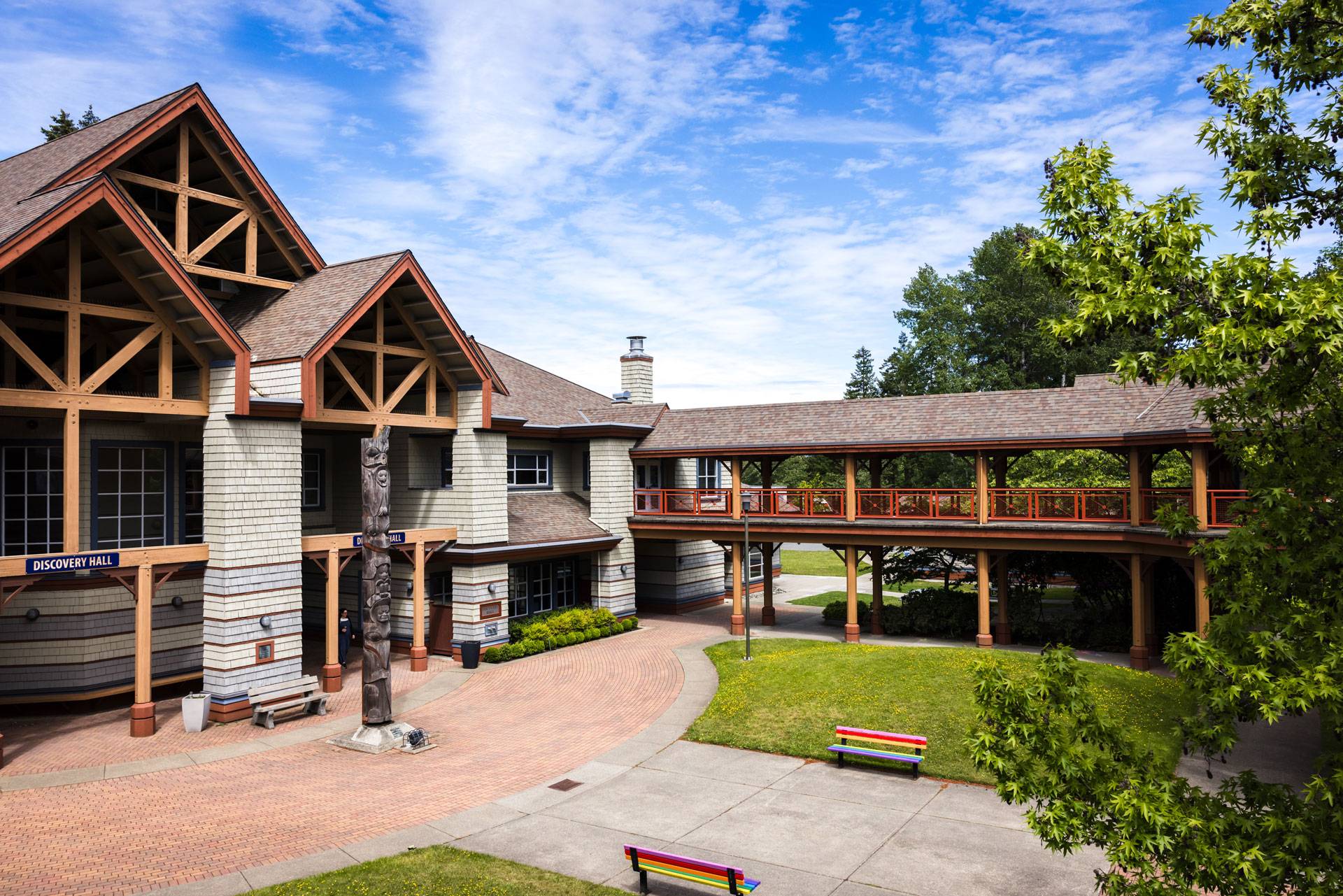Remembrance and healing were at the forefront of the annual Stolen Sisters Memorial March for missing and murdered indigenous women, which took place on Feb. 14. The march of around 800 people began at Our Place Society on Pandora Ave., and proceeded to the Legislature. There, food was provided and families shared stories to honour the memory of their lost loved ones.
According to organizers, the march is made “to honor the loved ones we have lost, and those still missing, to give space for community healing and to bring awareness to the disproportionate and ongoing violence to our women, girls, and two-spirit peoples.”
The Women’s Memorial March Committee, which organized the first march in 2007, was born out of the injustice surrounding a woman’s murder in the downtown eastside of Vancouver in 1991. Since then, marches have been held across Canada, as participants demand answers as to why cases of missing and murdered indigenous women are so frequent.
A report released by the RCMP in 2015, titled “Missing and Murdered Aboriginal Women: A National Operational Review,” stated that there were 225 unsolved cases of missing or murdered indigenous women in 2014, with a 9.3 per cent reduction in 2015 (204 cases).
In addition, the report says that 70 per cent of acts of violence against indigenous women are perpetrated by people within their home, or people in their community. The report also says that between 1980 and 2012, incidents of indigenous women homicides and missing persons reports totalled 1 181.
Early this year, Indigenous Affairs Minister Carolyn Bennett and Status of Women Minister Patty Hajdu have suggested a national inquiry to open up some of these cold cases, in the hopes of bringing closure to families. The inquiry remains in roundtable discussion and the process is yet to be determined.
Grace-Anne Thunder of the Ahousaht nation participated in the march and praised the event’s focus on community.
“It’s a beautiful event and it’s a really good reminder of the fact that this [issue] is ongoing and that there is still healing that needs to continue, and that this issue needs to be addressed,” she said. “It’s currently not being addressed in an effective way.”
During the march, a common phrase that could be heard throughout the sea of people was “It’s so great to see you, I haven’t seen you in so long,” as extended families and friends came together to support each other.
March participant and UVic student Becca Elliott said that it was great the event brought family together from all backgrounds and felt proud that “Canadians are standing together” on the issue.
Thunder felt the march is necessary for healing to take place, and hopes for a shift in dialogue towards justice, rather than fear.
“I want to say to all indigenous women and babies here today, you were not born to walk in fear,” Thunder said. “You were born to walk in pride like the warriors you are. So hold your head high, fill your heart with love, and know that you are surrounded by protection. So let’s work together to change this dialogue.”
More information about the march can be found on the Women’s Memorial March Committee’s website at womensmemorialmarch.wordpress.com.
Correction: A previous version of this story said that Thunder led the singing and drumming at the head of the march. The singing and drumming was actually led by a group of youth. We’ve edited the article to reflect this and apologize for the error.






